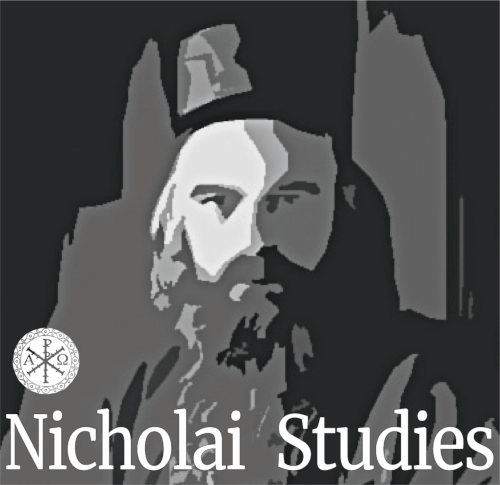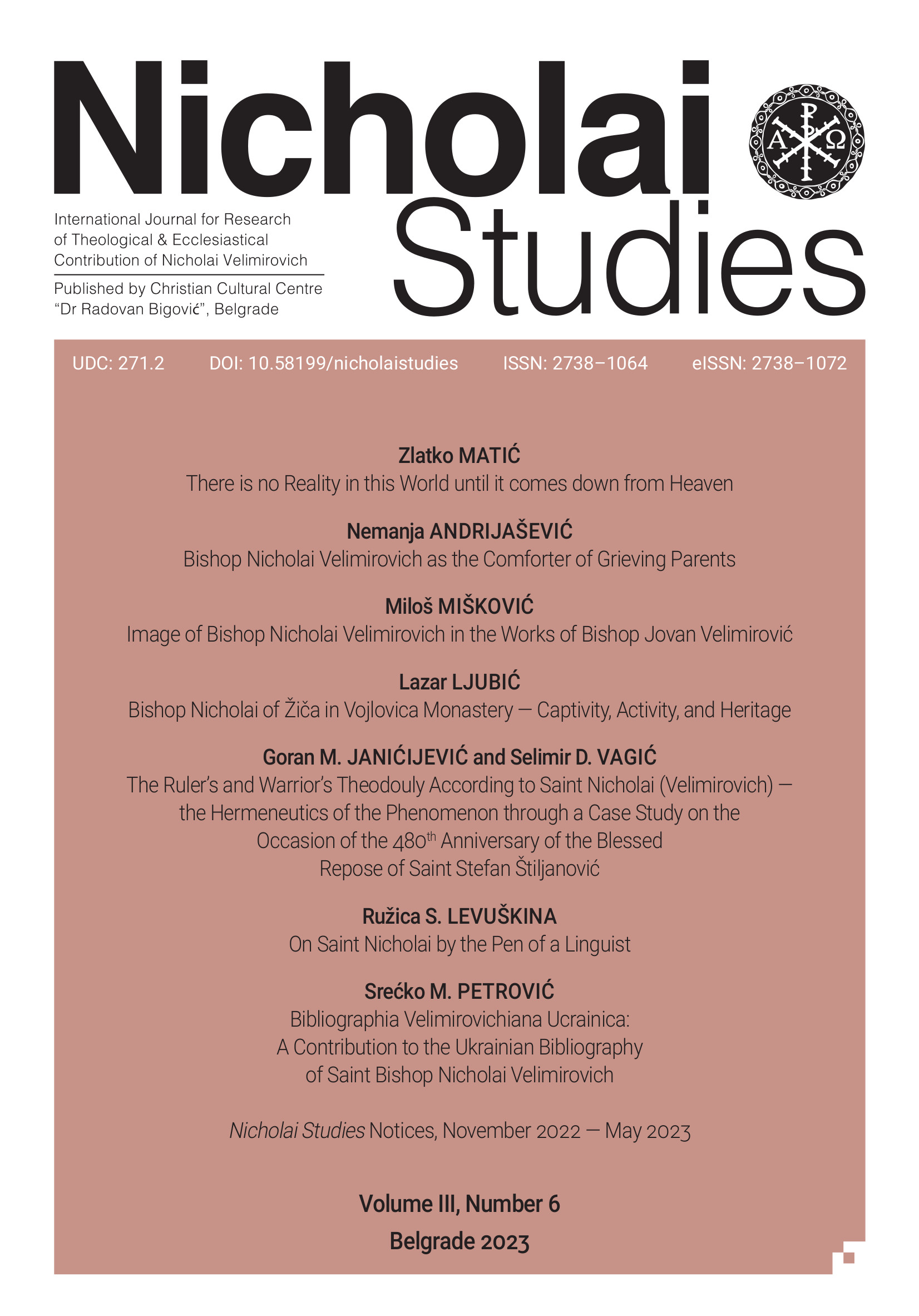The following paper is the address that is communicated at the promotion of the collection of articles Bishop Nikolaj Velimirović: Old Controversies in Historical and Theological Context in Belgrade, on March 14, 2023.
The paper focuses on two specific topics — two discourses in the prophetic opus of Bishop Nicholai as a counterpart to the Old Testament messianic places in relation to their New Testament fulfillment. Those lofty but controversial prophecies of Nicholai are: 1) criticism of Europe and deified and untouchable European values, and 2) the question of truth and its reification in the modern world.
1. Contemporary Europe, Nicholai loudly warned, has abandoned Christianity, the Gospel, and the Church, because those three realities did not withstand the criticism of pan–European reason. That is why the Bishop criticizes Europe very harshly. Because of this, Europe is ardently criticized by Fr. Justin Popović. Because of this, Pope Benedict XVI also sharply criticizes Europe. Maybe the theologians are one–sided. What do modern analysts who are not theologians tell us about this topic? The Polish philosopher Henryk Dominik Skolimowski (1930–2018) equally sharply criticizes the Western world, shaped according to Aristotle’s mold. In his opinion, the entire Aristotelian, and with it, Thomistic view of the world “disintegrated into pieces. All consistency is gone.” Man experienced alienation from his knowledge and his values, traditional values.
It is unlikely that Skolimowski read Nicholai, but they sound almost the same. Rationality has become an apocalyptically powerful weapon, I would say that its consequences can be seen in the smoke of Auschwitz and Hiroshima, and today they threaten to overcome even that evil.
2. Due to his ecumenical openness, promotion of interreligious dialogue, and underlining his views on Christians before Christ, prophets, and outside the Chosen People, Bishop Nicholai suffered criticism for syncretism and relativization of the truth. With these stated positions, we see the Serbian Saint, contrary to all myopic visions that follow him, as a prophet and forerunner of the comprehensive establishment of the original Orthodox theological concept of truth. Today, it is impossible to talk about truth as a formed and given reality, as a petrified objectified thing with which reason agrees. No matter how strange it may seem, it should not frighten our theology. The Orthodox Church is precisely based on the teaching that truth is an event. The truth arises in the process of communion: it has no dogmatized value, and all this is due to the identification of truth with Christ himself, that is, with a living, free personality. The Church and the world (and thus other God-seekers) can participate in the formation of truth, through its occurrence. Instead of starting from the position of possessing the truth, the Church could be the bearer of the maieutic method of giving birth to the truth, in a free dialogical process of listening to the longings and hopes of concrete people of the 21st century. Thus, we would find ourselves on the path to the creation of truth, rather than its definitive self-affirmation within the boundaries of our own denomination. Why wouldn’t many prophets be creative companions on that road? Knowing who the Truth is, we are not afraid of the outcome of the journey.
The dialogical challenge, therefore, sets Christianity and the world before the task of changing, which is not foreign to Christianity, if it is understood as the Church, and not as an armored religious collective, if it is understood as a living community, which is on the way to the future Last Event, to the abolition of death, as the only — eternal Truth. In poetic theological terms of Saint Nicholai, who was transfigured in Ohrid, let’s say: “There is no ... reality in this world until it descends from heaven” (Prayers by the Lake, 48). Until then, let’s create truth (I underline the verb create, because according to the words of the beloved Apostle John, children of God create truth, 1 John 1:6) and let’s create it together. The Serbian Chrysostom underlines the word together and manifests himself as a forerunner of a pluralistic vision of truth, a postmodern, always new Christ, that Nazarene from the first century. If we believe that He is the origin of the road, because He is with us, we will not be afraid of the road itself. If, on the other hand, we believe that He is that Way, we will rush towards it, just as the Saint Bishop did, to multiply the number of companions.




